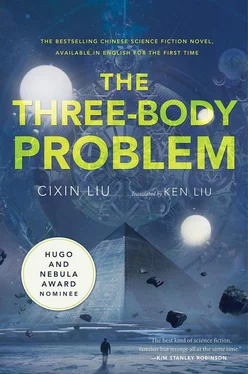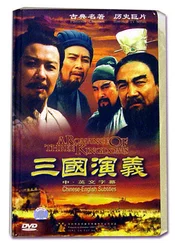But he wasn’t idle. He appeared to be conducting some kind of research at home, always deep in thought. Whenever he met any visitor, he would greet them absentmindedly and then return to his room upstairs. Most of his day was spent there. One time, Wang glanced into his room through the half-open door and saw an astonishing sight: a powerful HP workstation. He was sure of what he saw because the workstation was the same model as the one he used at the Research Center: slate-gray chassis, model RX8620, four years old. It seemed very strange to own a machine costing more than a million yuan just for personal use. What was Wei Cheng doing with it all day?
“Yufei is a bit busy right now. Why don’t you wait a while?” Wei Cheng walked upstairs. Wang tried to wait, but he found that he couldn’t be still, so he followed Wei Cheng. Wei was about to enter his room with the workstation when he saw Wang behind him, but he didn’t seem annoyed. He pointed to the room across from his. “She’s in there.”
Wang knocked on the door. It wasn’t locked, and it opened a crack. Shen was seated in front of a computer, playing a game. He was surprised to see that she wore a V-suit.
The V-suit was a very popular piece of equipment among gamers, made up of a panoramic viewing helmet and a haptic feedback suit. The suit allowed the player to experience the sensations of the game: being struck by a fist, being stabbed by a knife, being burned by flames, and so on. It was also capable of generating feelings of extreme heat and cold, even simulating the sensation of being exposed in a snowstorm.
Wang walked behind her. As the game was displayed only on the inside of the panoramic viewing helmet, there were no colorful images on the computer monitor. Wang suddenly remembered Shi Qiang’s comment about memorizing Web and e-mail addresses. He glanced at the monitor. The game site’s URL caught his attention: www.3body.net.
Shen took off the helmet and stripped off the haptic feedback suit. She put on her glasses, which appeared extra large against her thin face. Without any expression, she nodded at Wang and said nothing. Wang took out the mess of film rolls and began to explain his strange experience. Shen paid full attention to his story, picking up the rolls of film and only casually looking at them. This surprised Wang, but further confirmed for him that Shen wasn’t completely ignorant about what he was going through. He almost stopped speaking, but Shen kept on nodding at him, indicating that he should continue.
When he finished, Shen spoke for the first time. “How’s the nanomaterial project you’re leading proceeding?”
This non sequitur disoriented Wang. “The nanomaterial project? What does that have to do with this?” He pointed at the rolls of film.
Shen didn’t answer, but continued to stare at him, waiting for him to answer her question. This was always her style, never wasting a single word.
“Stop your research,” she said.
“What?” Wang wasn’t sure he heard right. “What are you talking about?”
Shen remained silent.
“Stop? That’s a key national project!”
Shen still said nothing, only looking at him calmly.
“You have to give me a reason.”
“Just stop. Try it.”
“What do you know? Tell me!”
“I’ve told you all I can.”
“I can’t stop the project. It’s impossible!”
“Just stop. Try it.”
That was the end of the conversation about the countdown. After that, no matter how hard Wang tried, Shen only repeated, “Just stop. Try it.”
“I understand now,” Wang said. “The Frontiers of Science isn’t just a discussion group about fundamental theory, like you claimed. Its connection to reality is far more complicated than I had imagined.”
“No. It’s the opposite. Your impression is due to the fact that the Frontiers of Science concerns matters far more fundamental than you imagine.”
Desperate, Wang got up to leave without saying good-bye. Mutely, Shen accompanied him to the door and watched as he got into the taxi.
Just then, another car drove up and braked to a hard stop in front of the door. A man got out. By the faint light leaking from the house, Wang recognized him immediately.
The man was Pan Han, one of the most prominent members of the Frontiers of Science. A biologist, he had successfully predicted the birth defects associated with long-term consumption of genetically modified foods. He had also predicted the ecological disasters that would come with cultivation of genetically modified crops. Unlike the prophets of doom who regularly warned of catastrophes without any particulars, Pan made predictions that always gave many specific details that later turned out to be correct. His accuracy was such that there were rumors that he came from the future.
The other cause for his fame was that he had created China’s first experimental community. Unlike the “return to nature” utopian groups in the West, his “Pastoral China” wasn’t located in the wilderness, but in the midst of one of its largest cities. The community had no property of its own. Everything needed for daily life, including food, came from urban trash. Contrary to the predictions of many, Pastoral China not only survived, but thrived. Currently, it had more than three thousand permanent members, and countless others had joined for short stints to experience the lifestyle.
Based on these two successes, Pan’s opinions on social issues had grown more and more influential. He believed that technological progress was a disease in human society. The explosive development of technology was analogous to the growth of cancer cells, and the results would be identical: the exhaustion of all sources of nourishment, the destruction of organs, and the final death of the host body. He advocated abolishing crude technologies such as fossil fuels and nuclear energy and keeping gentler technologies such as solar power and small-scale hydroelectric power. He believed in the gradual de-urbanization of modern metropolises by distributing the population more evenly in self-sufficient small towns and villages. Relying on the gentler technologies, he would build a new agricultural society.
“Is he in?” Pan asked Shen, pointing to the house.
Shen didn’t answer, but blocked his progress.
“I have to warn him and also warn you. Do not force our hand.” Pan’s voice was cold.
Shen called to the taxi driver, “You can go now.” After the taxi started, Wang couldn’t hear any more of the conversation between Shen and Pan, but he glanced back and saw that Shen did not let Pan into the house.
* * *
By the time Wang arrived home, it was already after midnight. As Wang got out of the taxi, a black Volkswagen Santana braked to a stop next to him. The window rolled down and a cloud of smoke emerged. Shi Qiang’s thick body filled the driver’s seat.
“Professor Wang! Academician Wang! [14] Translator’s Note: This refers to Wang’s status as a member of the Chinese Academy of Sciences.
How’ve you been the last couple of days?”
“Are you following me? Don’t you have anything better to do?”
“Now, don’t misunderstand me. I could have just driven past you, but instead, I chose to be polite and stop to greet you. You’re making being nice a thankless task.” Shi revealed his trademark roguish smirk. “Well? Did you find out any useful information over there?”
“I’ve told you already, I don’t want anything to do with you. Please leave me alone from now on.”
“Fine.” Shi started the car. “It’s not like I’m going to starve without the overtime for doing this. I’d rather not have missed my soccer match.”
* * *
Wang entered the apartment. His wife was already asleep. He could hear her tossing and turning in bed, mumbling anxiously. Her husband’s strange behavior during the day was surely giving her bad dreams. Wang swallowed a few sleeping pills, lay down on the bed, and, after a long wait, fell asleep.
Читать дальше












